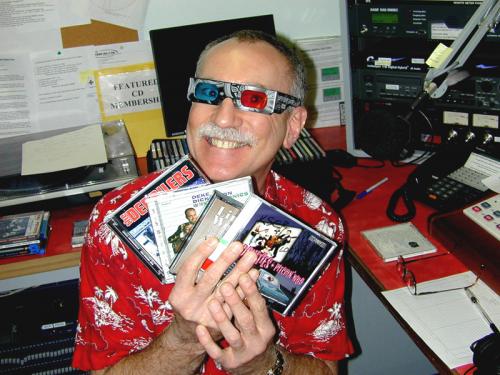Is right-wing talk radio on it's death bed? Is El Rushbo on life support?
Jerry Del Colliano thinks so. And he may be the most connected radio insider. Colliano started the trade publication
Inside Radio. He hasn't owned it for years, but at one time it was considered the Bible of the radio business.
In an article in
The Daily Beast, Del Colliano is quoted as saying, “We’re watching the end of right-wing conservative talk radio. The genre is dying among ratings and dying among advertisers ... Rush
is at the end of his career. His constituency is all wearing Depends."
Not so fast. To paraphrase Mark Twain, the reports of right-wing radio's death are greatly exaggerated.
Sure, there are cracks in the veneer. Just this week several of the big broadcast corporations that syndicate the top conservative talk-shows reported declining revenues. For example, Salem Communications saw a 1.6% 1st quarter revenue decline. Cumulus, which syndicates Rush Limbaugh, saw it's 1st quarter revenue drop 1.3%. This, at a time when the economy is supposed to be improving!
And now there's new grumbling between Cumulus and their 'star' syndicated talk-host. You may recall that last year Rush Limbaugh, who has been married four times, repeatedly called Sandra Fluke - on-air - a 'slut' and a 'prostitute.' His tirade was met with an advertiser boycott, which at the time Rush tried to downplay.
But now Cumulus CEO Lew Dickey apparently feels otherwise. He said that some of the Cumulus losses are because of "the issues that happened a year ago", a clear reference to the Rush/Fluke controversy. And now Limbaugh is firing back, letting it be known that he may
leave the company when his contract expires at the end of the year.
And if that wasn't enough of a challenge for the big talk company, they may now be losing the man some believe was being groomed to replace Limbaugh: Mike Huckabee. The former Arkansas governor was signed with much fanfare less than a year ago and heavily promoted by Cumulus. But, now Huckabee says he might not
stick with Cumulus or even with radio.
But before you start feeling sorry, please realize that even with the
the grumbling and the revenue declines the big radio syndication companies are still bringing in major money. Salem's first quarter revenue was more than $43-million; and
the Cumulus first quarter revenue was almost $233-million. Rush Limbaugh, personally, makes more money in a year than most independent public radio stations generate in a decade.
When you scan your radio dial, especially the AM dial, you'll find no shortage of syndicated conservative talk shows. Rush. Glenn Beck. Sean Hannity. Mark Levin. Mike Huckabee. Michael Savage. Michael Medved. Laura Ingraham. John Gibson.Who am I leaving out?
And where's the balance? On the other end of the AM radio spectrum there were progressive talkers. But in Seattle and Portland the solo stations carrying those shows switched to sports-talk this year.
Radio industry insider Jerry Del Colliano makes another interesting shifting-demographic point in that
Daily Beast article: “Look at the millennial generation. There’s 80 million
of them coming of age. They don’t see color. They don’t see gender. And
they’re civic minded: they don’t like bloviating. They don’t like
yelling and screaming. So you tell me: how’s right-wing talk radio
working for them?
If you're counting on a giant shift in the broadcast landscape in the near future, however, don't hold your breath. Shows like Democracy Now, or reasonable discussions of the news like you'll hear on The Takeaway or KSER's Sound Living, are rare and relatively hard to find. Many cities and towns don't have their own independent radio station. And it's hard to envision any of the corporate owned commercial stations suddenly making a giant political shift.
When you listen to shows like Democracy Now with Amy Goodman on KSER, or
online at KSER.org, you quickly realize that you're hearing news and
information that you're really not going to get anywhere else. And none of the independent stations have the revenue or resources of companies like Cumulus, Clear Channel or Salem. Instead, stations like KSER survive mostly on listener support. Financial support from people like you.
We can hope the balance changes...but hope, alone, probably won't get us there.


.JPG)
.JPG)




.jpg)
.JPG)
.JPG)
.JPG)

.JPG)

.JPG)


.JPG)
.JPG)



.JPG)

.JPG)
.jpg)







.jpg)

